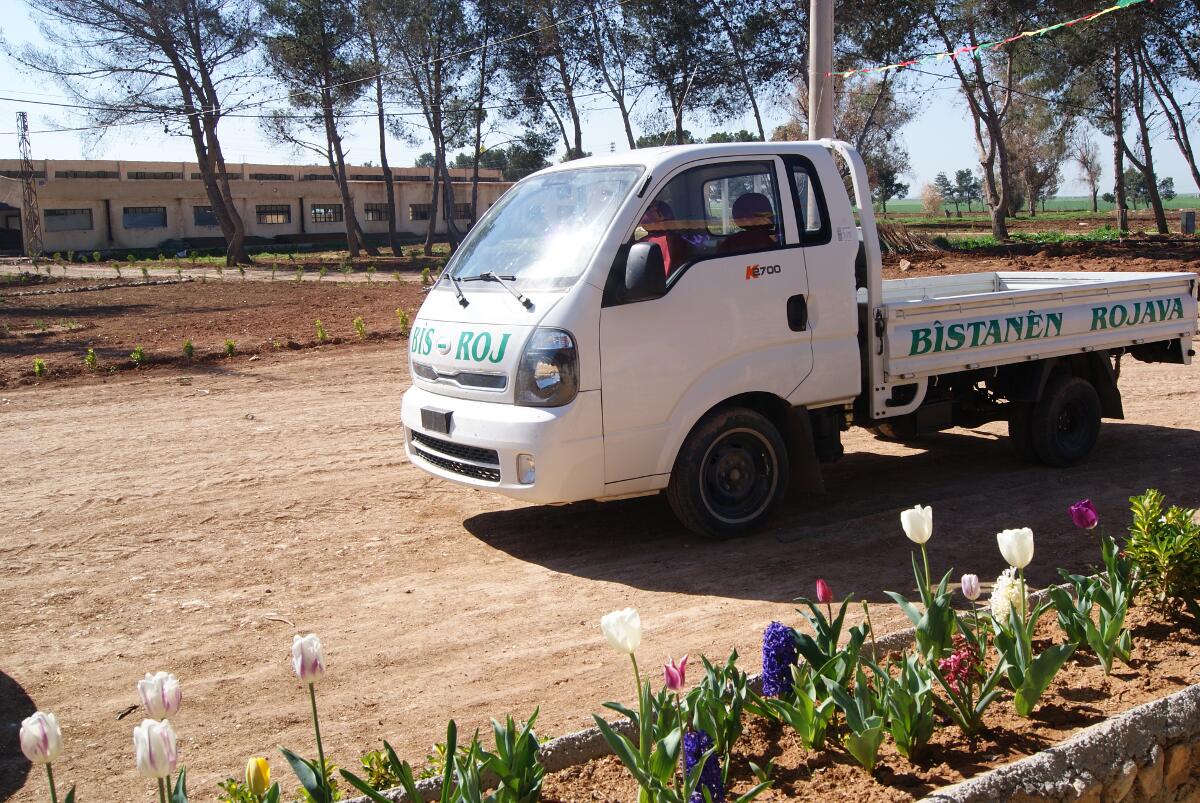Sadly no longer functioning, this was a cooperative project founded by Nahide, a Kurdish woman living in England, to be a groundbreaking women’s cooperative. Many of the lessons learned in this early organic agricultural experiement have been fed into later cooperatives.
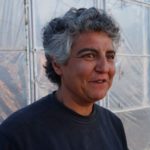
While Naide Zengin was working on building sites in England she had wished to do something for Rojava, so she prepared a greenhouse project. “Finding my country and putting my work into it allowed me to be reborn. In this rebirth there is hope for a brand new world and a future. I have chosen the place I want to die”, she says.
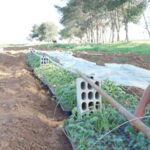
Under the Baath regime, Rojava had to provide wheat for the whole of Syria. And it had to export oil in order to make foreign currency for Syria. Nothing else.
And now? As long as there is war, this will determine the economy of Rojava. 70% of the budget is used for weapons, ammunition, logistics, and so on. That's $10,000 a month. Then the families of fallen fighters need to be supported if they no longer have an income. They are given land and they are accepted into cooperatives. There are also cooperatives being opened in craft and trade specifically for them. Finally, because of the embargo, petrol and wheat cannot be exported. And the prices for commodities like vegetables and textiles are climbing.
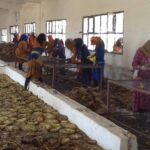
Women are the most dynamic force in the economy. What’s special in Rojava is that every day women are organising and taking control of new projects in areas ranging from agriculture to the textile industry. With the communal economy as their basis, the women are developing skills in order to produce according to the needs of the people. Their aim is to provide healthy nutrition and a contented life. They are showing that they can do this themselves.
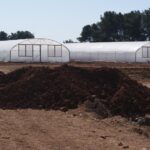
“If we don't give this to the society then we're going to be just like a company. Then we're not working for Rojava, we're working for ourselves.”
